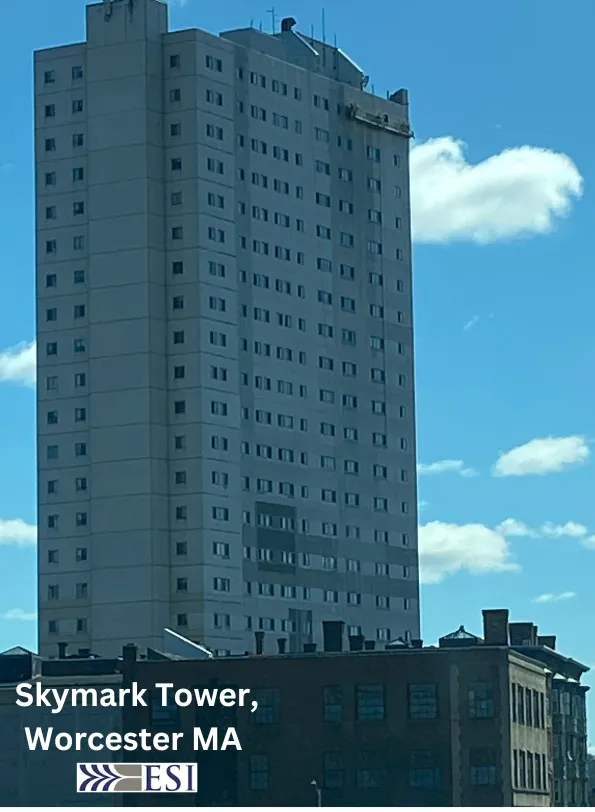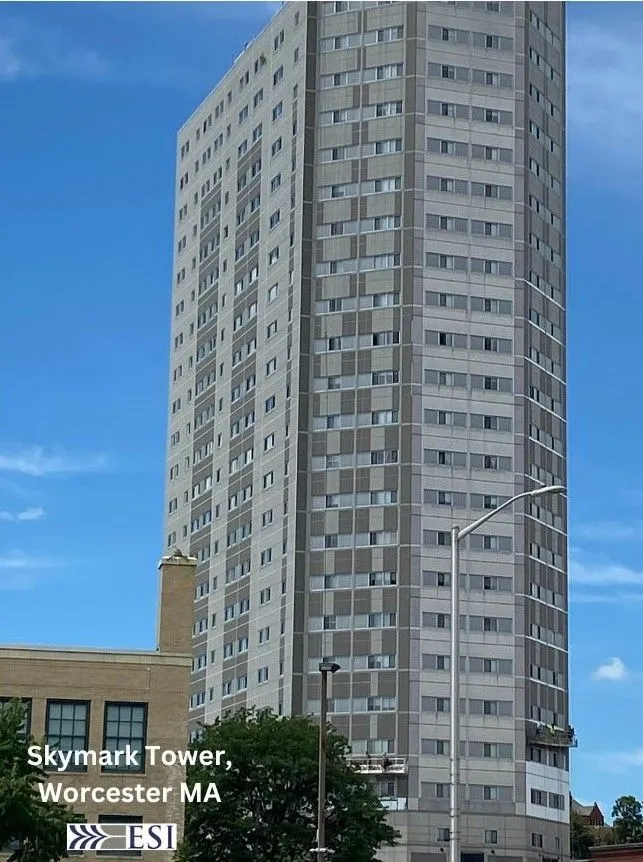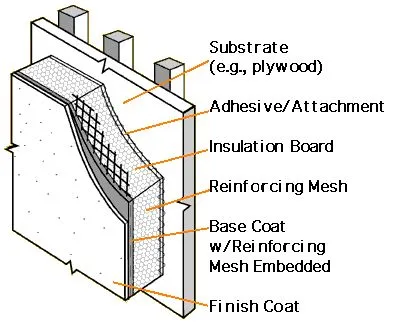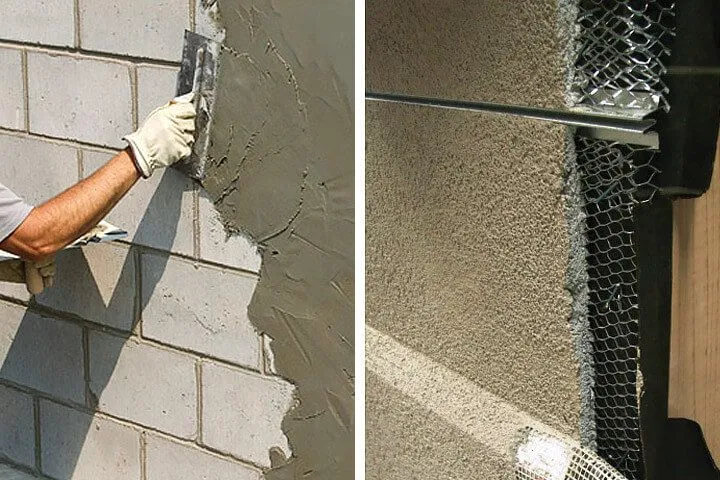The ongoing evolution of building and energy regulations, driven by the objectives of sustainability, improved performance, and decreased energy usage, poses a growing challenge for architects, engineers, and builders to remain at the forefront of innovation. To meet these regulatory demands, the construction sector has witnessed significant improvements in wall structures, including enhanced insulation, reduced thermal bridging, and more effective management of air and moisture infiltration. The comprehensive wall cladding system known as Exterior Insulation and Finish Systems (EIFS) stands out for its composition and adaptability, offering a user-friendly, all-in-one solution to address the evolving demands of design and construction.
Exterior Insulation and Finish Systems (EIFS) are a popular choice for exterior construction in complex or demanding situations for several reasons. EIFS is a multi-layered system that combines insulation, a reinforcing mesh, and a durable finish coat, and it offers a range of benefits that make it well-suited for complex building projects.
Sky Mark Tower contracted ESI to perform façade work involving repairing the exterior insulation and finish system (EIFS) on the building, replacing the window perimeter sealants, and applying a new color scheme to the building using an elastomeric coating. This repair scheme gives the property a new look and feel across the skyline as well as a watertight building envelope!
Below are the various reasons as to why repairing the EIFS was an integral construction phase of this project for ESI:


1. Versatility: EIFS does not follow a one-size-fits-all approach. From a designer’s standpoint, there are numerous options for customization, including the choice of insulation type, whether it be expanded polystyrene (EPS) or extruded polystyrene (XPS), based on your specific preferences and performance requirements. The availability of a comprehensive range of pre-base coated components, encompassing starter boards, trims, edges, and corners, simplifies installation challenges and facilitates the proper application of joint sealants, which can be argued as the most critical aspect of a building’s exterior. Furthermore, the latest advancements in hydrophobic chemistry enable the acrylic-textured finish and paint coatings to repel water effectively and minimize dirt accumulation. In conjunction with cutting-edge chemistry for high-performance colorants, offering UV and fade resistance, EIFS ultimately lead to reduced maintenance expenses by keeping the façade cleaner and more vibrant for an extended period.
2. Extreme Durability: Recent innovations have resulted in exceptional durability and resistance to impacts via a High Durability EIFS system, featuring an ultra-high impact mesh assembly installed across all EIFS cladding sections. EIFS finishes are designed to withstand the elements and UV exposure, ensuring a long-lasting and low-maintenance exterior. The system’s resistance to cracking and fading can be particularly beneficial for buildings with intricate designs.
3. Crack Resistance: EIFS can accommodate building movement and settling more effectively than traditional masonry or stucco. This is especially important in complex construction, where there may be greater stress on the building structure.
4. Water Resistance: EIFS offers excellent moisture resistance. This is essential for complex construction projects, as water damage can be particularly challenging to address in intricate and hard-to-reach areas.
5. Insulation and Energy Efficiency: EIFS provides a high level of thermal insulation, which can significantly improve a building’s energy efficiency. The continuous insulation layer helps reduce thermal bridging, minimizing heat transfer through the exterior walls and reducing energy consumption. In complex construction, where precise temperature control is often crucial, EIFS can help maintain a comfortable indoor environment.
6. Design Flexibility: EIFS can be customized to achieve a wide variety of architectural styles and design elements. Its flexibility allows for intricate detailing, curves, and unique shapes, making it an excellent choice for complex building exteriors.
7. Lightweight & Cost-Effective: EIFS is relatively lightweight compared to traditional masonry or concrete cladding systems. This can be advantageous for complex construction projects as it places less structural load on the building and may lead to cost savings.
8. Reduced Labor: Due to its lighter weight and ease of installation, EIFS often requires less labor compared to traditional masonry, making it a practical choice for complex construction projects.
9. Ease of Installation: EIFS can be installed relatively quickly compared to some other cladding systems. This can be advantageous in complex construction projects where time is a critical factor.
10. Moisture Resistance: EIFS systems are designed to resist moisture penetration, making them suitable for complex exteriors that may be exposed to various weather conditions. The system’s proper installation and use of moisture barriers help protect the underlying structure from water damage.
11. Cost-Effective: EIFS can often be more cost-effective than other exterior cladding options, making it an attractive choice for construction projects with budget constraints. Its energy efficiency can also lead to long-term cost savings in terms of reduced heating and cooling expenses.
12. Sustainability: Many EIFS systems are designed to meet green building standards and improve a building’s overall energy performance. This can contribute to sustainability goals and may qualify for incentives or certifications like LEED.
13. Maintenance and Repair: EIFS is relatively easy to maintain and repair, especially when compared to traditional stucco or masonry. This can be beneficial for complex buildings with hard-to-access areas that might need occasional maintenance.
14. Aesthetic Options: EIFS offers a wide range of design options. Complex construction projects often demand unique and attractive exteriors, and EIFS can be customized to achieve a variety of textures, colors, and finishes.
It’s important to note that the success of an EIFS application in complex construction depends on proper installation by experienced professionals and compliance with local building codes and regulations. Additionally, the choice of EIFS system and components should be made carefully to ensure the system’s performance meets the specific needs of the project.

